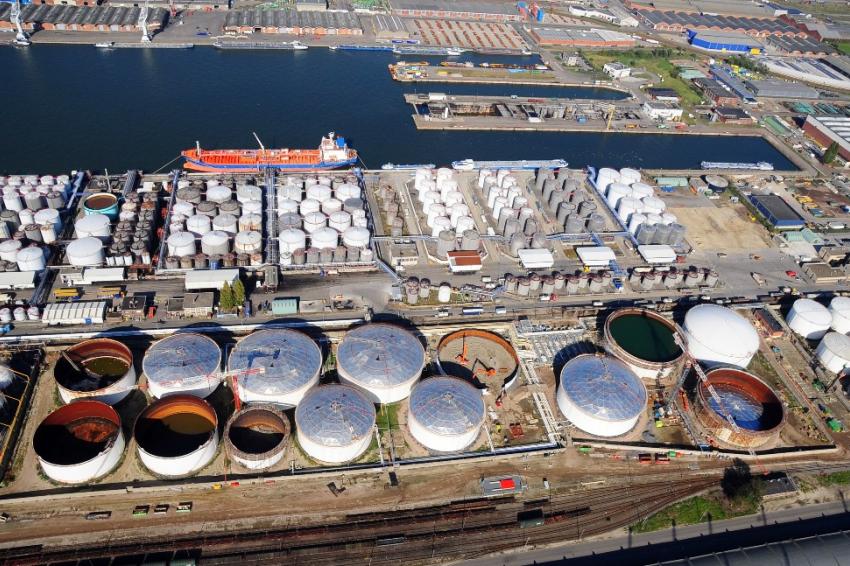Port of Antwerp: Maritime Traffic Of Chemical And Petroleum Products Grows By More Than 30%
30.01.2014 -
The Port of Antwerp set a new freight record in 2013 and handled a total freight volume of 190.8 million tons over the year. The traffic volume in 2013 exceeds that of the record year 2008, and is again higher than just before the international financial crisis. In the chemicals and petroleum derivatives sectors, Antwerp has gained a significant market share in the liquid bulk sector for north-western European ports. Liquid bulk traffic in Antwerp rose by 31.4%. to 59,493,776 tons over the past 12 months.
Antwerp as an international storage and distribution hub
The petroleum derivatives segment, with products such as petrol, diesel, domestic heating oil and kerosene, achieved the highest growth, with 43.1 million tons maritime traffic. Since 2000, the port of Antwerp recorded a staggering 213% growth in this segment, making it the fastest grower in the Antwerp-Rotterdam-Amsterdam range (ARA range) for these products.
These traffic figures are the result of investments by a number of major port companies in Antwerp and also prove that the Port Authority's decision to free up space for such tank storage effectively meets the market demand. This has resulted in a boost in the volume of petroleum derivatives.
Sea-Tank Terminals, a Belgian group, managed to attract several global energy companies and traders and to expand its storage terminal capacity. Also the substantial investments made by Antwerp Terminal Processing Company (ATPC - part of VTTI terminal group) in the expansion of their tank storage combined with the deepening of the maritime access by the Port Authority contributed to the handsome growth in this segment.
Maritime traffic of crude oil recorded a 83.4% increase (to 4.7 million tons) following the takeover and relaunch of the PetroPlus refinery under the name of IBR by Gunvor, an internationally recognised energy trading group.
Various Antwerp industrial players continued to expand their production: Total, Ferro, Kuwait Petroleum International, BP Lubes, Air Liquide and Praxair announced major investments in Antwerp. The Exxon Mobil refinery is currently examining plans for further investment in their Antwerp plant. Antwerp is also an important international trade centre for lubricants and bunker fuels.
In addition, tank storage companies such as Oiltanking Stolthaven Antwerpen, LBC, Vopak, ADPO, NoordNatie Odfjell Terminal and ITC Rubis ensured that tank storage capacity in the port has increased by 151% over the past 10 years.
The port currently has 15 tank storage terminals with a total capacity of 6.4 million m3 and the storage companies have indicated their intention to continue to expand in the near future, thereby responding to the planned investments of the production companies and the increasing international trade flows. During the last ten years Belgium has thus become the leader in Europe for imports of chemicals from the Gulf States.
Strong petrochemical industry cluster
The Antwerp chemical industry is one of the major chemical clusters in the world, and companies like Lanxess, BASF, Ineos Oxide, FRX Polymers and Evonik Degussa all reported significant investments in 2013.
Together with the associated increase in tank storage capacity for chemicals, this will further strengthen Antwerp's market position in Europe in the field of chemical logistics. The maritime bulk chemical cargo registered in 2013 a leap forward close to 10% versus the traffic realized in 2012, to above 11 million tons. The chemical products increased by 205% versus 2000.






